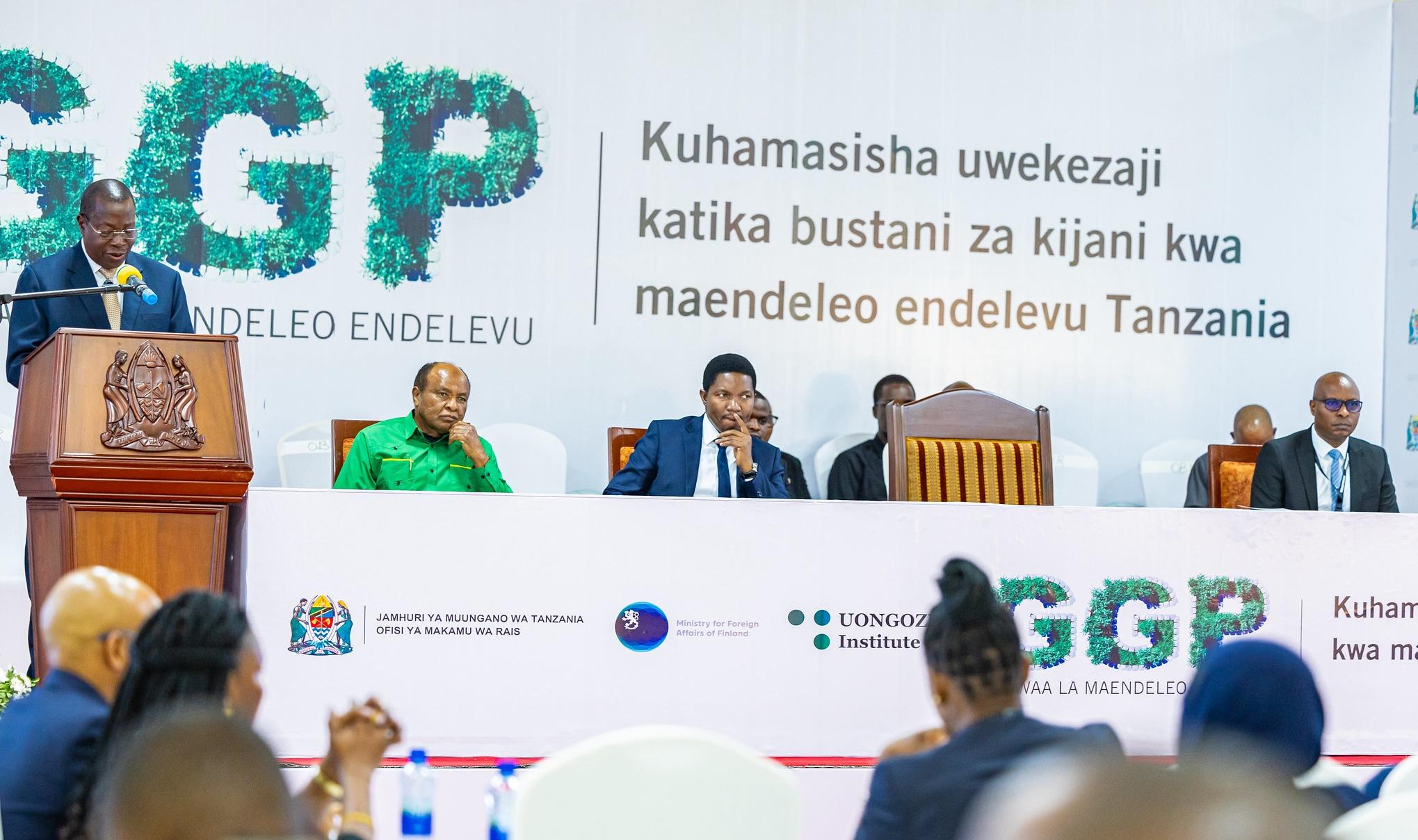“When you leave your ministry, what do you hope your legacy will be?”
This is a question that our CEO, Kadari Singo posed at the beginning of his The Function of Leadership presentation during an onboarding programme for the newly appointed Ministers and Deputy Ministers of the Government of the United Republic of Tanzania in Dodoma, October 2021. He echoed this question in another capacity development programme that the Institute delivered to Ministers, Deputy Ministers, Permanent Secretaries and Deputy Permanent Secretaries of the Revolutionary Government of Zanzibar in Zanzibar, December 2021.
The aim was to help these leaders consider policy priorities as well as personal goals for their time in office. And eventually, help the government deliver on its commitment to realising sustainable development in the country. One of the key elements to achieving this is effective political-administrative interface: A functional, healthy relationship between the politicians (ministers) and administrators (permanent secretaries).
One of our instructors, former Chief Secretary Phillemon Luhanjo, describes a minister as political commissar of the ministry and permanent secretary as chief executive officer. He notes that both of them are presidential appointees with functions that are intrinsically linked and thus, an effective relationship is imperative. Prime Minister Kassim Majaliwa Majaliwa and Zanzibar’s Second Vice President Hemed Suleiman Abdulla agree. During the Dodoma event, Hon. Majaliwa said:
“We [ministers] must always bear in mind that the President has entrusted us with the task of helping her deliver on her responsibilities. As an executive authority for policy choices and development plans in our country, it is important to encourage effective relations with administrators.”
When he was officiating the Zanzibar event, H.E. Abdulla considered the roles of minister and permanent secretary as a representation of ‘checks and balances’. He added:
“The key is to understand of your role and those of others to ensure greater efficiency.”
As political commissar, a minister is ultimately responsible for actions of their ministry (individual ministerial responsibility). This includes ensuring effective implementation of policies under their portfolio and execution strategies to guide the delivery of the Ruling Party’s Election Manifesto and Tanzania Development Vision 2025; representing their ministry in the parliament; building the image of their ministry; and providing clarification/information on certain decisions and challenges to the president, parliament and public. As a member of the cabinet, a minister is expected to adhere to the collective ministerial responsibility, which entails keeping the discussions prior to coming to a collective decision confidential as well as supporting government’s decision thereafter.
As chief executive officer, a permanent secretary takes the accounting officer’s role. Due to their institutional knowledge and technical experience, their primary role is to advise the minister on various matters affecting policies in their area. Particularly, they are charged with developing strategies to achieve policy outcomes for the minister to approve and present to the legislature for voting; executing and monitoring approved plans and budgets; and overseeing all employees in the ministry.
To promote positive relations between the two parties, Luhanjo recommends building trust plus strengthening leadership competences – including cultivating self-awareness, effective communication and time management, and the culture of reading.
Launched in 2010, this ministerial leadership programme has been delivered in collaboration with the President’s Office – Public Service Management and Good Governance and the Revolutionary Government of Zanzibar. Programme instructors include former and long serving senior leaders. It covers Political-Administrative Interface and several other courses, including Government Structure and Security, Individual and Collective Ministerial Responsibility, Personal Leadership, Emotional Intelligence and Psychological Safety, as well as Rule of Law.






